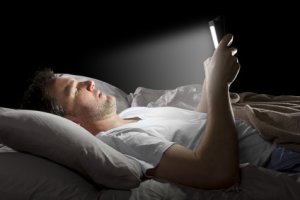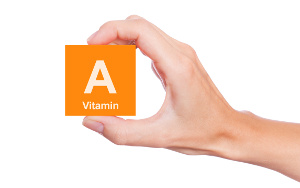Laptops and mobile phones in bed disturb your sleep
 Texting, reading emails and surfing the net in bed is bad for your health. The blue light that is emitted from the devices inhibits sleep and work performance, according to scientific experts.
Texting, reading emails and surfing the net in bed is bad for your health. The blue light that is emitted from the devices inhibits sleep and work performance, according to scientific experts.
Many people bring their mobile phones, laptop computers, or tablets to bed to text, read emails, or surf the net. This, scientists say, is bad for one’s health. The blue light that is emitted from the screens affects human biology in a way that inhibits sleep and work performance.
Suppresses melatonin
What happens specifically is that the light exposure suppresses the body’s production of a sleep-inducing hormone called melatonin, which is secreted by a gland situated in the center of the brain, the so-called pineal gland. Normally, when it gets dark outside, the pineal gland increases its production of melatonin which makes us feel drowsy and go to sleep. However, by exposing ourselves to artificial light late in the evening, our melatonin release is disturbed.
Regulates our sleep pattern
Melatonin is the stuff that regulates our perception of day and night – also called our 24-hour clock or circadian rhythm. It regulates our sleep pattern. It is more than a natural sleep inducer, however. Melatonin is also a powerful antioxidant that protects our cells against damage, and researchers have actually found a link between low melatonin levels and cancer.
Increased cancer risk
A 2012 study that was published in Occupational and Environmental Medicine found that women with nightshift work were 40% more likely to be diagnosed with breast cancer than women who had never worked nightshifts. More than 18,000 women took part in the study. The researchers are not sure exactly what mechanisms are at play but they suspect that the lower melatonin levels in people who work where they would normally be sleeping could interfere with melatonin’s role in cell growth and repair.
The use of supplements
Many people with nightshift work find that melatonin helps them fall asleep in the daytime where the daylight would normally create problems in that respect. Also, melatonin has proven itself useful for transatlantic travelers with jetlag who need to adjust their internal clock to the time difference. Melatonin is a safe supplement that can be used to alleviate sleep disturbances or to take in situations where your melatonin levels are likely to be lower than normal.
- Created on .












 "After about one week of taking the Q10 supplement I could feel a huge difference," says 23-year old Alan Piccini, who has been suffering from extreme fatigue and muscle aches ever since he was a child.
"After about one week of taking the Q10 supplement I could feel a huge difference," says 23-year old Alan Piccini, who has been suffering from extreme fatigue and muscle aches ever since he was a child. “Taking capsules with co-enzyme Q10 has freed me of the severe side effects of my cholesterol lowering medicine,” Mrs Franken explains.
“Taking capsules with co-enzyme Q10 has freed me of the severe side effects of my cholesterol lowering medicine,” Mrs Franken explains.